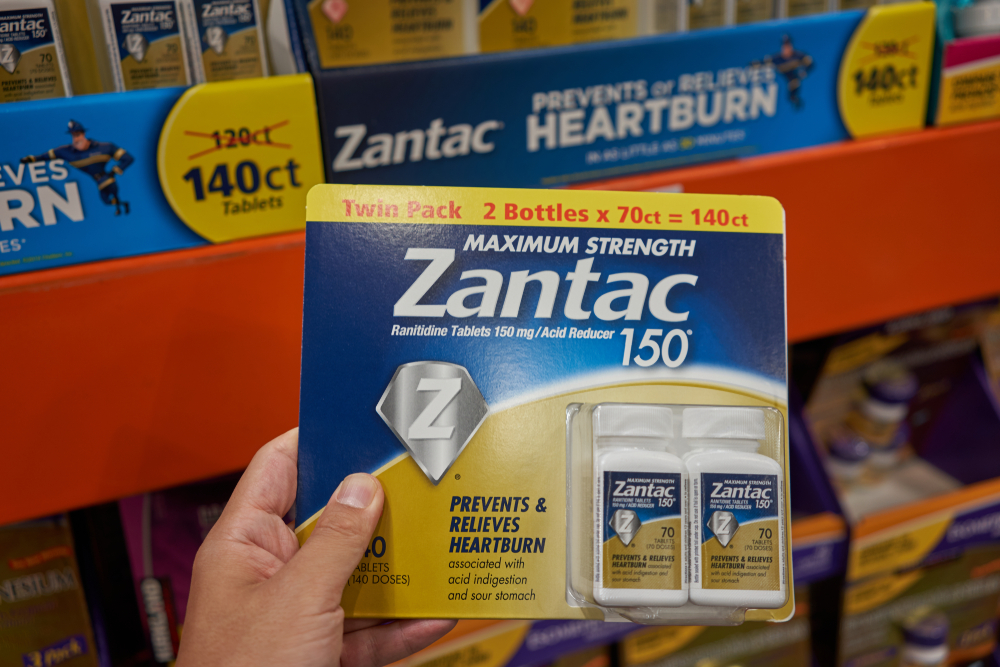Not long after it was introduced to consumers in the early 1970s, Roundup became the go-to weed killer for homeowners and farmers alike. The product grew so popular that it eventually became the most used herbicide in the history of the world.
Roundup remains in wide use for residential, agricultural, and commercial uses despite thousands of lawsuits claiming that the weed killer causes cancer. U.S. District Judge Vince Chhabria is overseeing the multidistrict litigation over the majority claims that the herbicide Roundup causes cancer. In late June, Bayer, the company that owns the Roundup brand, said it had agreed to pay $10 billion to settle the lion’s share of more than 100,000 lawsuits.
It’s unclear how many plaintiffs in those cases will accept the company’s offer, as well as what might happen when new cases are filed in the future, as Roundup is still on the shelves with no sign that it will be removed or recalled. A separate class-action lawsuit was recently settled, and while it’s not related to those who may have gotten sick from Roundup, consumers should still know their rights in relation to that case.
Every case is different, and for those who were exposed to Roundup and later got sick, it’s important to consult a qualified local attorney who can evaluate the particulars of your case and situation. But there are some basics that people should know, given the ubiquity of this product in controlling weeds in agricultural, residential, and commercial environments.
- What Is Roundup?
- Roundup Risks & Lawsuits
- What Should I Do if I Have Been Affected by Roundup?
- How to Know if I Qualify to Be Part of a Roundup Lawsuit?
- How Does the Roundup Lawsuit Work?
- How Long Does It Take to Settle a Roundup Lawsuit?
- What Is the Statute of Limitations on Roundup lawsuits?
- How Much Can You Get From a Roundup Lawsuit?
- How Long Does It Take to Get Your Money After You Settle a Lawsuit?
What Is Roundup?
Roundup is the brand name of just one prominent weed killer that uses as its primary ingredient a chemical called glyphosate. How did this chemical become the key ingredient of the most popular weed killer of all time?
What Is Glyphosate?
Glyphosate is a chemical compound that was originally used as a cleaning agent to remove deposits of calcium and other minerals from the boilers and pipes of hot water systems. It was first patented for this purpose in 1961 by the Stauffer Chemical Co.
Weed Killer Use & Monsanto
Monsanto chemist John Franz discovered that glyphosate was highly effective at killing weeds, but at the time, it was believed that the chemical had no effect on animals or humans. In 1970, Monsanto patented glyphosate’s use as an herbicide, and by 1974, the product was introduced to U.S. markets as Roundup.
Nearly a century earlier, in 1901, Monsanto made a name for itself by introducing the artificial sweetener saccharin, and in the 1940s, the company developed polystyrene, the main component of Styrofoam. Monsanto would go on to produce other controversial products like 2,4-D, which later was used to make Agent Orange, as well as the now-banned insecticide DDT and the artificial sweetener aspartame.
Roundup Ready Seed
Glyphosate is a broad-spectrum herbicide, which means it’s designed to kill all the plants with which it comes into contact. Because of that, farmers would need to be cautious about how they applied the product to avoid killing the very plants they were trying to grow.
In the mid-1990s, Monsanto then began releasing a series of genetically engineered seeds that were resistant to Roundup, which would pave the way for farmers to apply Roundup liberally to their fields without worry over their crops.
By 1998, the company had released Roundup Ready versions of both soybeans and corn, two crops that combined to account for more than 40% of all U.S. crop receipts in 2018.
Monsanto Sold to Bayer
In 2016, German pharmaceutical giant Bayer purchased Monsanto for a reported $66 billion. Bayer, which invented Aspirin in the late 19th century, announced that it would likely discontinue the use of the Monsanto name after the sale was finalized in 2018. In some cases, lawsuits reference only Monsanto, while others reference both Bayer and Monsanto.
Roundup Risks & Lawsuits
Currently, there are upwards of 100,000 lawsuits pending against Bayer and Monsanto over Roundup and glyphosate. Where do these cases stand, and why is Roundup still on store shelves?
Legal Status
In 1985, the U.S. Environmental Protection Agency classified glyphosate as a Class C carcinogen, which meant that the agency determined that some evidence suggested the herbicide could cause cancer. But in 1991, the agency changed glyphosate’s classification to Class E, suggesting that it was found not to cause cancer in humans.
A World Health Organization panel in 2015 determined that glyphosate is a probable human carcinogen, though the herbicide’s U.S. classification did not change. Still, several countries have outright banned the use of the chemical, including Germany, where glyphosate use will end by 2023.
Several American cities have banned or limited the use of Roundup and other glyphosate-based herbicides, including Austin, Miami and Seattle, and the state of California officially lists glyphosate as a carcinogen.
Roundup & Cancer
Most of the lawsuits that have been filed so far against Monsanto and Bayer concerning exposure to Roundup center on plaintiffs who say they used the weed killer and later developed non-Hodgkin lymphoma, a form of cancer.
Non-Hodgkin lymphoma (NHL) accounts for about 4% of all cancers in the U.S., according to the American Cancer Society. Lymphoma is a form of cancer that develops in the body’s white blood cells, a key building block of the immune system.
As with all cancers, survival rates are tied to the stage of the cancer when it is detected. Localized cancers tend to be much more survivable than ones that have spread throughout the body. Those who are diagnosed with advanced NHL, meaning cancer that has spread to other parts of the body, have a five-year survival rate of 55%.
Non-Hodgkin Lymphoma Symptoms
Physical signs of non-Hodgkin lymphoma can vary from person to person, but the most common signals include:
- Enlarged lymph nodes
- Weight loss
- Chills
- Fatigue
- Chest pain or pressure
- Severe or frequent infections
- Swollen abdomen
- Easy bruising or bleeding
First Trial
Former California school groundskeeper Dewayne “Lee” Johnson was the first plaintiff whose claim against Monsanto proceeded to trial. The trial ended in August 2018 with a nearly $300 million verdict in Johnson’s favor, though that amount would later be reduced on appeal to about $21 million.
Other Verdicts
Two additional trials have proceeded against Roundup and its corporate owners, and both have resulted in blockbuster jury verdicts totaling more than $2 billion, though the financial particulars have changed on appeal.
Most arguments from plaintiffs have suggested that not only does Roundup cause cancer but that Monsanto was aware of the risks from their product and hid the reality of Roundup’s dangers from the public.
Settlement Offer
As the number of pending lawsuits ballooned to more than 100,000, negotiations began to issue mass settlements in huge swaths of cases. In late summer 2020, Bayer announced it had negotiated a $10 billion deal to settle the lion’s share of pending cases with an average payout of $160,000.
At the time, many plaintiffs in those cases suggested the amount was far too low, but it’s unclear how many of them will accept the settlement offer, since the company has threatened to file for bankruptcy protection, which would most likely further reduce the eventual payouts that plaintiffs could expect.
To be eligible for this settlement, plaintiffs must be able to show medical records of a non-Hodgkin lymphoma diagnosis as well as proving they were exposed to Roundup at least a year before they were diagnosed.
Class Action
A separate class-action lawsuit alleges that the product labeling on Roundup is misleading and caused people to purchase the product when they otherwise would not have. This class action is not related to personal injury or cancer cases but rather alleges that the product’s labeling is misleading because it says the weed killer targets a substance found only in plants and not in humans or other animals.
In April 2020, Bayer reached an agreement to settle this class action for nearly $40 million, with plaintiffs in different states having a varying window to make claims. In some cases, the window for claims in the settlement goes back to 2009, while in most states, it’s 2015. See what the period spans in your state. (Not all states have approved the settlement yet.) Bayer says it will change the product’s label.
Future Cases
Roundup remains on the shelves, and Bayer and Monsanto have not moved to recall or change Roundup to eliminate possible risks of exposure. So, the likelihood is high that more cases could be filed in the future, even if the $10 billion settlement goes through.
In July 2020, Bayer proposed and then backed off a plan to resolve potential future claims over Roundup by establishing a panel that would decide if Roundup is cancer-causing at all, and if not, the future cases would not proceed.
Bayer withdrew this plan after it became clear it would not be approved by the judge handling litigation against the company in federal court in California.
Statute of Limitations
In every state, regulations limit the amount of time an individual has to file a lawsuit claiming they’ve been harmed by a product. The statute of limitations for claims related to Roundup varies from one year to six years, and the clock generally starts from the date that Roundup-related health problems are diagnosed.
Some Roundup cases may be filed after the death of an individual, and those cases would be filed as wrongful death claims, which typically have a window of one to two years.
Regardless of the specifics, it’s important for those who used Roundup and became ill to contact a qualified local attorney who can assess their case and help them determine the best way to proceed. That’s because no two cases are identical.
What Should I Do if I Have Been Affected by Roundup?
If you have been exposed to Roundup and believe that your health could be in danger as a result, you should make an appointment to speak with a doctor right away. While the link between Roundup and cancer is still in dispute, if you have developed cancer, such as non-Hodgkin lymphoma, as a result of exposure to Roundup, there’s not a moment to waste. The sooner you are diagnosed, the more years you likely will have to live.
Those who have used Roundup and later been diagnosed with cancer should contact a qualified attorney in your area who can help you determine the next steps, which may include filing a lawsuit against Bayer, the company that owns Roundup.
If you were affected by the misleading product labeling, click here to learn more.
How to Know if I Qualify to Be Part of a Roundup Lawsuit?
Bayer has proposed a settlement that would clear up most of the cancer-related lawsuits pending against the company, but it has yet to submit and get approved a plan for handling any future lawsuits. For those who believe they developed cancer as a result of their use of or exposure to Roundup, the best option for determining whether they qualify for a Roundup lawsuit is to consult with an attorney.
For those who may have been affected by misleading labeling on Roundup, click here to find out if you are eligible for a payment as a result of a class action settlement.
How Does the Roundup Lawsuit Work?
For the most part, lawsuits proceeding against Roundup are not a single class action, though the company has reached a preliminary agreement to settle most of the cancer-related cases that are still pending.
The company initially proposed a method for determining if Roundup causes cancer and, if so, determining future payouts to new plaintiffs, but after facing backlash, they withdrew that plan. So, for those who have become sick after using Roundup, filing an individual lawsuit is currently the only method of seeking justice.
Do I Need a Lawyer to Join a Roundup Lawsuit?
That depends on why you would be pursuing legal action. Those who feel they were misled into purchasing Roundup because of the product’s labeling, which indicated that it uses a chemical that does not affect humans or pets, may be eligible to receive a small cash payment without necessarily needing a lawyer.
For those who became sick, including being diagnosed with cancer after using Roundup, there is currently no finalized settlement or agreement that will allow them to apply for compensation, so a lawyer would be needed to fight your case.
How Long Does It Take to Settle a Roundup Lawsuit?
The first lawsuits connecting Roundup to cancer were filed around 2017, and 2020 is the first year that has seen the company make moves to negotiate mass settlements of lawsuits. That’s not to say that future cases would even be settled or that settlements would take three years to come to fruition.
It’s not yet known how Bayer will handle future claims that tie Roundup to cancer, as the company withdrew a recent plan that would have established a panel for deciding these claims. So, there is no one single answer to how long it might take to settle a Roundup lawsuit, but if history is an indication, at least a few years.
What Is the Statute of Limitations on Roundup lawsuits?
This depends on the nature of the claim. Lawsuits alleging personal injury or even wrongful death related to Roundup generally have a longer statute of limitations than cases related to the product’s labeling.
Personal injury lawsuits have a statute of limitations that ranges from two to six years, while product labeling lawsuits tend to have a window of only one or two years.
How Much Can You Get From a Roundup Lawsuit?
Three juries so far have awarded plaintiffs millions of dollars in connection with cancer-related Roundup lawsuits, though all three of those have been reduced upon appeal. That said, Bayer’s preliminary settlement agreement that would apply to most of the remaining cancer-related cases would average a settlement of about $160,000 per plaintiff.
The product-labeling class-action that the company also settled in 2020 will total nearly $40 million, with small payments reaching a high of about $90.
How Long Does It Take to Get Your Money After You Settle a Lawsuit?
Bayer’s $10 billion settlement offer for cancer-related Roundup cases has yet to be finalized, so to this point, no plaintiffs have received any settlement money from the company. Nor have those who received jury verdicts against the company, with those cases currently under appeal.
Observers believe that for those plaintiffs who do accept Bayer’s settlement offer in Roundup cancer cases, payouts could begin as soon as February 2021.





